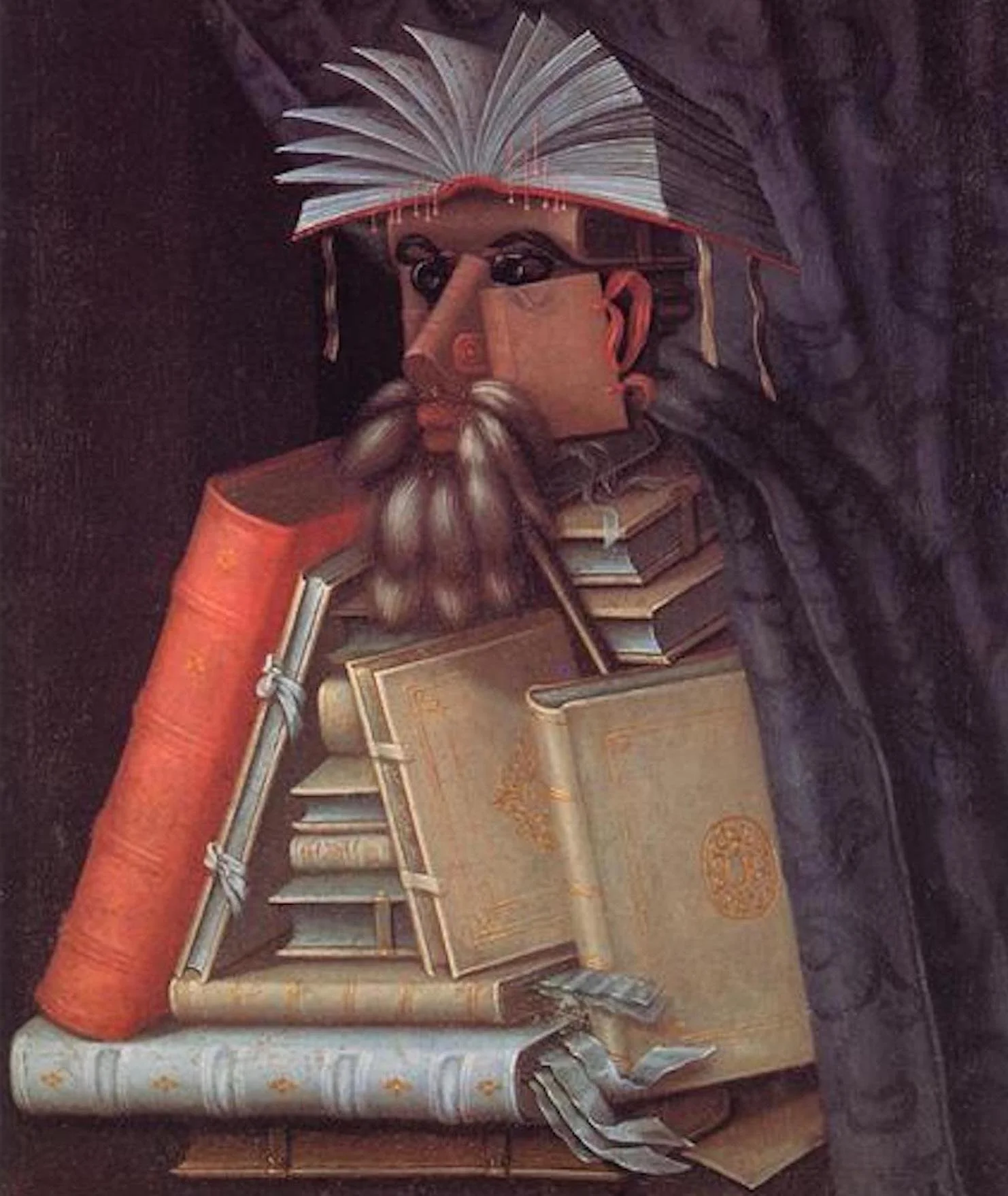The Librarian by Giuseppe Arcimboldo (1566)
Finding the Good Life — Through Great Books
In the case of good books, “the point is not to see how many of them you can get through, but rather how many can get through to you,” wrote the American philosopher Mortimer Adler. Socrates put it this way, by employing our time with others’ writing, we come easily by what others have labored.
How should one choose their reading list? What books lead to the good life? These are the types of questions I asked Karen Swallow Prior (a previous podcast guest), the author of On Reading Well: Finding the Good Life Through Great Books.
The Virtue of Reading
In my interview with Prior, she explained, “Reading well is, in itself, an act of virtue, or excellence, and it also a habit that cultivates more virtue in return.”
Before I began writing this book, explained Prior, I fell in love with the classical philosophy around virtues, especially Aristotle, later Aquinas. And so when I sat down to write the book, I was really writing it in a way for me, I wanted to know what these virtues are, how they’ve been defined, and then how we see them embodied in real life.
Reading richly layered prose or poetry requires us to pay attention. It requires us to slow down, reflect, and imagine the world through other eyes.
Prior revealed,
I don’t think I realized until later in life, how much being a reader shaped my thinking and my perspective, and even my virtues.
On Reading Well
The theologian C.S. Lewis once said, “It is a good rule after reading a new book, never to allow yourself another new one till you have read an old one in between.” Similarly, Henry David Thoreau suggested, “Read the best books first, or you may not have a chance to read them at all.”
The philosopher Seneca also warned against reading too widely in a letter to Lucilius. Seneca advised, “Be careful, not to read many authors and every type of book. It may be that there is something wayward and unstable in it.” Stay with a limited number of writers and be fed by them if you mean to derive anything that will dwell reliably with you.
It is not enough to read wisely, writes Prior. One must also read well. One must read virtuously.
Literature embodies virtue by offering images of virtue in action and allowing the reader to practice exercising virtue in their mind. To quote Rene Descartes, “The reading of all good books is like a conversation with the finest people of past centuries.”
The Virtue of Prudence
“There is something in the very form of reading — the shape of the action itself — that tends towards virtue,” according to Prior.
When asked, “What is prudence?” Prior explained, “The shortest definition that I found is practical wisdom. Wisdom can be abstract and theoretical. But prudence is realistic, what we might think of as being wise when a situation calls for quick thinking and considering several factors — that require prudence. Perfectionism is not prudence. There is an old saying that the best is the enemy of the good.
Prudence is knowing how to weigh and measure all of the factors to get something done. The key is to get it done instead of putting it off, as a perfectionist might.
Final Thoughts
To conclude, the astronomer Carl Sagan writes beautifully on the brilliance and magic of books. “A book is made from a tree,” wrote Sagan. “It is an assemblage of flat, flexible parts (still called “leaves”) imprinted with dark pigmented squiggles.”
One glance at it and you hear the voice of another person, perhaps someone dead for thousands of years.
“Across the millennia, the author is speaking, clearly and silently, inside your head, directly to you. Writing is perhaps the greatest of human inventions, binding together people, citizens of distant epochs, who never knew one another. Books break the shackles of time — proof that humans can work magic.”
——
Thank you for reading; I hope you found something useful. If so, please consider sharing it with others.
Each week, we send a short reflection with three insights to help you live your highest good. If you are not a subscriber to The PATH you can sign up here to receive it right to your inbox.






